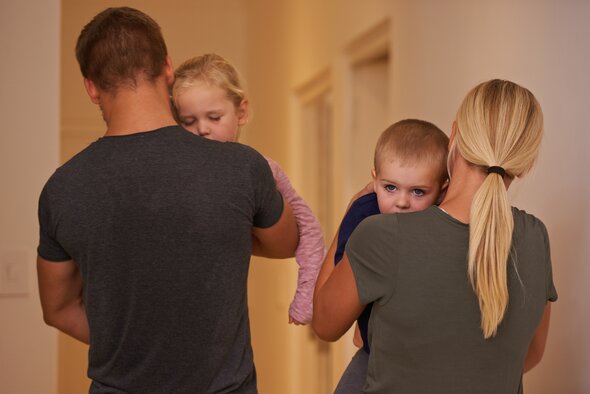Can a parent lose custody for not co-parenting effectively in Florida?

Key Takeaways
- Florida courts expect both parents to support the child’s relationship with the other parent and may modify custody if one parent refuses to co-parent effectively.
- Judges look at communication, parenting plan compliance, visitation patterns, and the emotional impact on the child to assess co-parenting behavior.
- Common red flags include badmouthing the other parent, ignoring shared responsibilities, and blocking visitation or communication.
- A family law attorney can help document these behaviors, defend your rights, and guide you through possible custody changes.
Why is co-parenting important in custody arrangements?
Co-parenting plays a big role in how Florida courts evaluate custody. It’s not just about logistics—it’s about stability. When both parents work together, it gives children a stronger emotional foundation and reduces the stress that can come from separated households.
Good co-parenting creates consistency in routines, supports your child’s development, and shows the court that you’re focused on what’s best for your child. It also helps reduce unnecessary conflict, which benefits everyone in the long run.
Can you lose custody for not co-parenting in Florida?
A judge may change your custody arrangement if you consistently refuse to co-parent. Florida Statute 61.13 specifically requires both parents to help foster a close relationship between the child and the other parent. If you’re actively blocking that, your custody rights could be affected.
Some of the behaviors that can hurt your case include:
- Withholding important information about your child’s health, schooling, or activities
- Badmouthing the other parent in front of your child
- Canceling visits or ignoring the parenting schedule
- Making big decisions without consulting the other parent
- Being hostile or uncooperative during pickups and drop-offs
These actions suggest that you’re not willing to work as a team, and courts don’t look kindly on that.
Get the right lawyer for your custody case
Schedule a free 15-min call with our team today
Get started
How Florida courts assess poor co-parenting
Judges don’t rely on hearsay—they look for clear behavior patterns. That means if you’re raising concerns about the other parent, you’ll need to back them up with documentation.
Here’s what they typically examine:
- Violations of the parenting plan: Missed visits, failure to share updates, or going against joint decisions without reason.
- Motions for contempt: If you’ve had to go to court because the other parent isn’t following orders, that history will be reviewed.
- The child’s best interests: Judges want to know how co-parenting failures affect the child emotionally and developmentally, not just how they affect you.
- Blocked visitation: If one parent consistently interferes with the other’s time, it shows a lack of cooperation.
- Communication issues: Ignoring messages, withholding key information, or using aggressive language in texts or emails can be used as evidence.

In other words, it’s not just about one or two bad days—it’s about an ongoing pattern that impacts the child’s well-being.
How a family law attorney can help protect your custody rights
If you're facing custody issues due to co-parenting conflicts, working with a family law attorney is one of the best steps you can take. A good attorney can help you gather the right documentation, respond to accusations, and show the court that you're acting in your child's best interests. They can also help you understand your legal rights and responsibilities under Florida law, guide you through court hearings, custody evaluations, or mediation, and challenge unfair claims made by the other parent.
An attorney can propose parenting plans that protect your time with your child and help prove parental alienation or other harmful behaviors affecting your relationship. Custody decisions are never easy, but with the support of Marble Law, you can present a strong case that focuses on your child’s well-being and your role in their life.
Quality legal help for life’s ups and downs
Get started right away

Family Law
Immigration Law
Disclaimer
Attorney Advertising. Prior results do not guarantee a similar outcome. The individuals represented in photographs on this website may not be attorneys or clients, and could be fictional portrayals by actors or models. This website and its content (“Site”) are intended for general informational purposes only. It does not constitute legal advice and is no substitute for consulting a licensed attorney. Only an attorney can provide you with legal advice, only after considering your specific facts and circumstances. You should not act on any information on the Site without first seeking the advice of an attorney. Submitting information via any of the forms on the Site does not create an attorney-client relationship and no such communication will be treated as confidential. Marble accepts clients for its practice areas within the states in which it operates and does not seek to represent clients in jurisdictions where doing so would be unauthorized.





